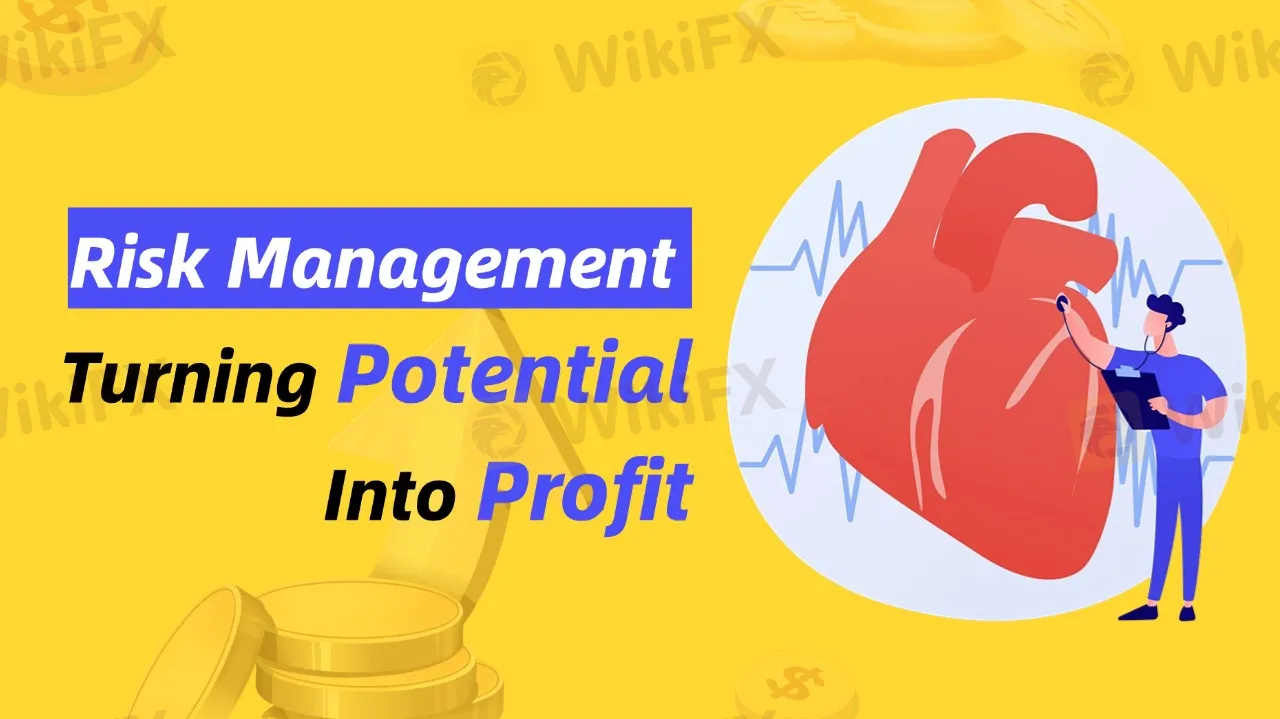简体中文
繁體中文
English
Pусский
日本語
ภาษาไทย
Tiếng Việt
Bahasa Indonesia
Español
हिन्दी
Filippiiniläinen
Français
Deutsch
Português
Türkçe
한국어
العربية
Risk Management: Turning Potential Into Profit
Abstract:In Forex Trading, Without Effective Risk Management, You Risk Huge Losses and the Complete Depletion of Your Account.

The Forex market is highly volatile, with various factors influencing currency fluctuations. Even experienced traders, without effective risk management, will struggle to turn their profits into tangible gains.
One of the most important actions in risk management is setting stop-loss orders. Let's say you're a Forex trader deciding to trade EUR/USD. You analyze and predict the euro might rise, so you decide to go long (buy). Your target price is 1.1000, but you're concerned the market might experience a brief pullback. Therefore, you set a stop-loss at 1.0950, meaning if the market drops to 1.0950, your position will automatically close to prevent further losses.
Suppose the euro does experience a brief dip and hits 1.0950, triggering the stop-loss. Although you lose 50 pips, the stop-loss limits your loss within an acceptable range, preventing the market volatility from turning into a catastrophic loss.
Another key aspect is proper capital allocation, ensuring one failed trade doesn't jeopardize the health of your overall account. Without controlling the loss size on each trade, a single large loss could wipe out your entire account, leading to a “game over” situation.
Equally important is avoiding emotional trading. Stick to your strategy and adjust based on real-time market conditions. If your gut tells you the market will rebound and you ignore your pre-set stop-loss and position size rules, and the market doesn't move as expected but instead continues to fall, you may find your position severely underwater, further amplifying your loss. Had you stayed calm and followed your strategy, your loss would have been contained within a manageable range.
Emotional trading is often the root cause of losses, while strict risk management helps you stick to your plan and maintain stability in your trades.
In conclusion, risk management is essential in Forex trading. It not only helps investors control losses but also provides a stable framework for profitable trading amidst market volatility. With effective risk management, investors can minimize unnecessary risks and ensure sustainable profits in the long run. A good risk management strategy will directly impact whether an investor can survive and succeed in this uncertain market.

Disclaimer:
The views in this article only represent the author's personal views, and do not constitute investment advice on this platform. This platform does not guarantee the accuracy, completeness and timeliness of the information in the article, and will not be liable for any loss caused by the use of or reliance on the information in the article.
Read more

Why Your Stop Loss Keeps Getting Hit & How to Fix It
Many new traders run into the same frustrating problem. They analyse the market, place a trade, and watch the price go against them just enough to hit their stop loss. Then, like a bad joke, the price moves exactly in their predicted direction. Read this article to learn how to fix this issue for good!

Safe-Haven Surge: Gold Shines Amid Market Turmoil
Rising geopolitical tensions fuel a flight to safety, propelling gold past key resistance and positioning it as a top-performing asset in today’s volatile market.

Forex Trading Challenges in India
Explore this guide to understand the challenges that deter India's forex market from unleashing its true potential.

The Deepening Roots of Forex Scams in India
Check out how forex scams in India have expanded beyond banks and unregistered brokers to include the informal gang racket duping investors every day.
WikiFX Broker
Latest News
Advantages of Using EA VPS for Trading - Detailed Guide
$1.1 Million Default Judgement Passed Against Keith Crews in Stemy Coin Fraud Scheme
MetaQuotes Rolls Out MT5 Build 5120 with Enhanced Features and Stability Fixes
Indian "Finfluencer" Asmita Patel Banned: SEBI Slaps Charges on Her Company, AGSTPL
HDFC Bank's Green Push: Empowering 1,000 Villages with Solar Energy
Safe-Haven Surge: Gold Shines Amid Market Turmoil
Why Your Stop Loss Keeps Getting Hit & How to Fix It
How Money Moves the World | Why Finance Matters for Everyone
IG Japan Issues Trading Alert as Israel‑Iran Tensions Escalate
Investor Alert: SEBI Introduces New UPI Safety Net Against Scam Brokers
Currency Calculator


